Kirk Douglas obituary: from ragman’s son to Hollywood icon
Kirk Douglas was vain, autocratic and opinionated, firing directors out of hand and reputedly seducing actresses on the sets of his movies.
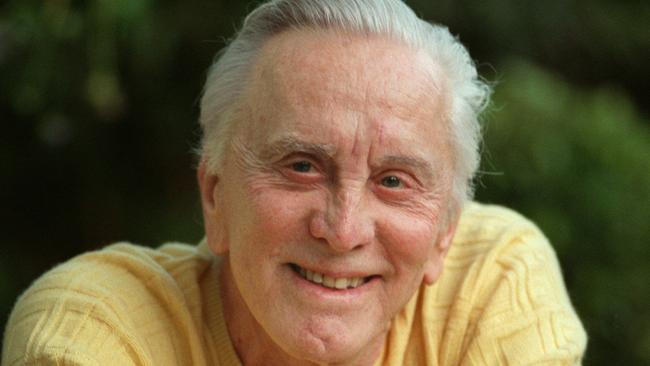
KIRK DOUGLAS (ISSUR DANIELOVITCH DEMSKY)
Born, New York December 9, 1916
Died, February 5, 2020
On a summer’s day in 1959, Peter Ustinov, Laurence Olivier and Charles Laughton assembled at the Hollywood home of producer/co-star Kirk Douglas to rehearse the script of Spartacus. Ustinov wore a sports jacket, Olivier his loosest flannel suit, Laughton, in a concession to his role as a Roman senator, a dressing gown. All were dumbfounded when Douglas bounded out in tunic and sandals, waving a sword. He remained in character throughout the afternoon, while the others stifled their grins.
Douglas could argue that a hard upbringing encouraged him to commit all his energies to anything he did. Born in 1916 of illiterate Russian immigrants, he was raised in remote Amsterdam, New York. His father, a tailor, turned to junk dealing, and young Kirk earned pocket money selling candy and drinks from a smaller version of his father’s cart.
He began acting in high school, where he was also wrestling champion. Wrestling and waiting tables got him through St Lawrence University and the Academy of Dramatic Arts. A few roles on Broadway attracted the attention of producer Hal Wallis who, with a little urging from Lauren Bacall, a childhood friend (though never, he insisted, a lover), signed him to a $500 a week Warner Brothers contract.
His arrival in Hollywood coincided with that of Burt Lancaster. Both men shared an aggressive acting style and shark-like grin, a fact which Douglas took as a personal challenge. “He wanted to be Burt Lancaster all his life,” remarked John Frankenheimer, who directed both men in Seven Days in May.
Douglas’s snarl and trademark cleft chin soon made their mark in melodramas and crime films, particularly Jacques Tourneur’s 1947 Out of the Past/Build My Gallows High where, playing a superficially genial gambler with a hidden capacity for revenge, Douglas held his own against Robert Mitchum. In 1949, Mark Robson cast him in Champion as an unscrupulous boxer, and Wallis upped the price of his loan-out to other studios from $50,000 to $200,000.
Bastards with charm made Douglas’s career. He could be ingratiating as the gentleman caller opposite Jane Wyman in the 1950 version of Tennessee Williams’s The Glass Menagerie, or as a sponsor-pecked writer of radio soap operas in Joseph Mankiewicz’s witty A Letter To Three Wives, but such roles never came easily. He was closer to type in Billy Wilder’s The Big Carnival/Ace in the Hole as an unscrupulous reporter who discovers a man trapped in a desert mine, and delays his rescue, eventually fatally, to build a big story.
Vincente Minnelli exploited his toughness in The Bad the Beautiful, (originally titled Tribute to a Bad Man), giving him some of his all-time best scenes as a relentless movie producer. Caught on the opening night of his big movie relaxing with a sexy starlet, Douglas rages at Lana Turner that he doesn’t dare accept love for fear it will destroy those instincts with which he turns people like her into stars. Like much in the film, the scene transcends the novelettish story.
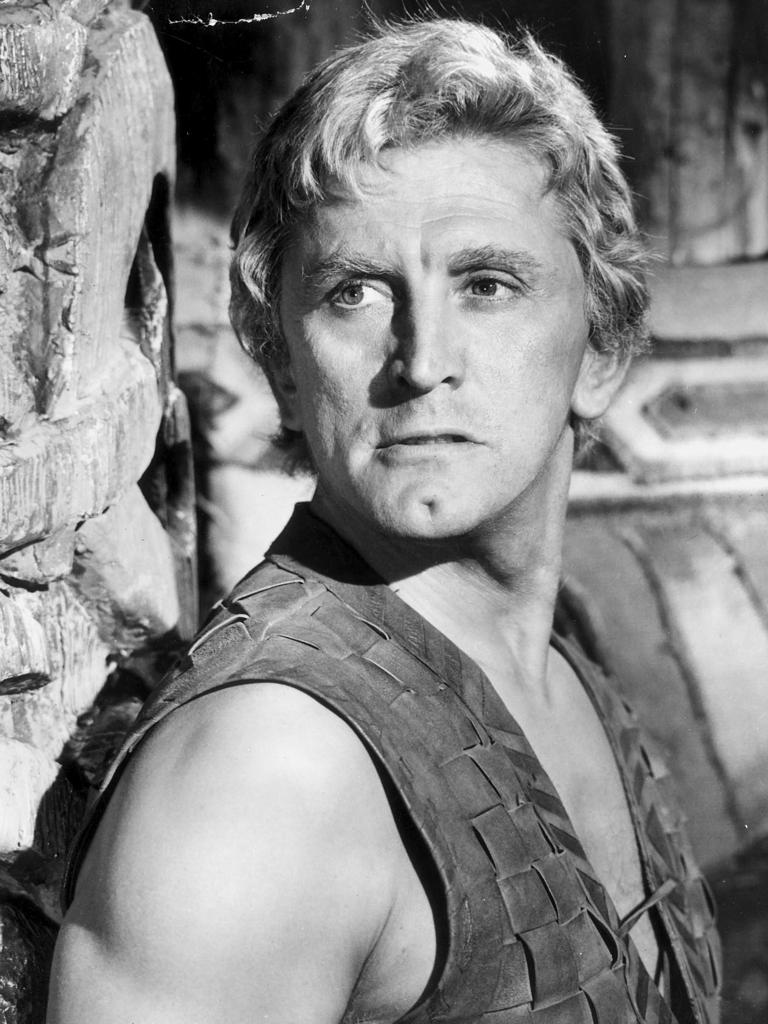
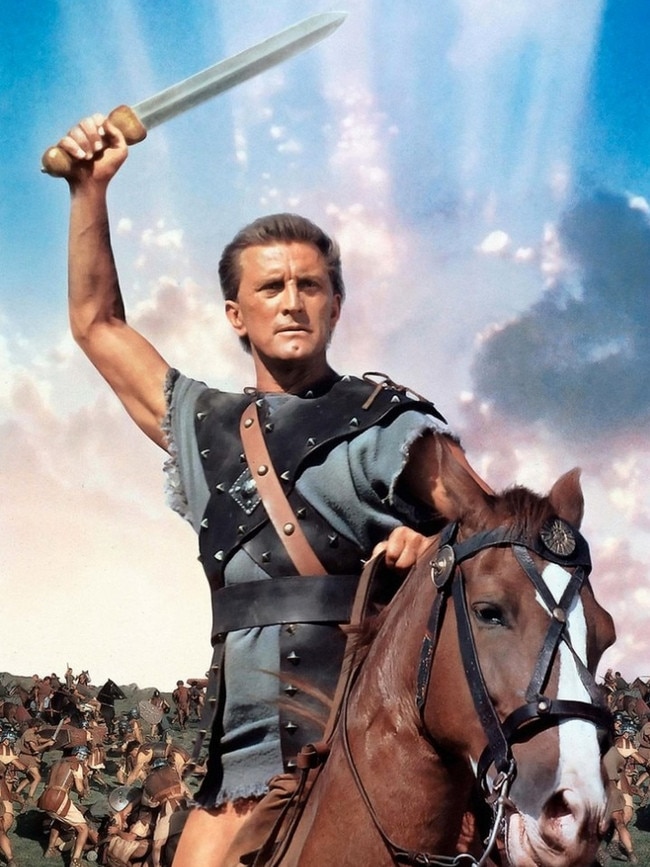
In the early films, Douglas joined the flood of American actors who minimised tax by working in Europe. Stanley Kramer’s 1953 The Juggler, shot partly in Israel, re-introduced him to his Jewish roots, and he became a passionate proponent of Israeli independence, a theme that would run through his films as a producer. He also divorced his wife of almost 20 years, with whom he’d had two sons, including later star Michael, and after a series of affairs with European actresses married Anne Budyens in 1954.
In 1955, he returned to the US, and, again trailing Lancaster, launched his own production company, Bryna. Richard Fleischer, who directed its greatest success, The Vikings, acknowledged that, as a producer, Douglas was “knowledgeable, creative, and passionately involved”. He was also vain, autocratic and opinionated, firing directors out of hand and reputedly seducing at least two or three women in the cast.
Douglas forced United Artists to finance Stanley Kubrick’s World War I drama Paths of Glory by threatening to take The Vikings to another company, but his price was a third of the budget as his fee, and Kubrick’s acquiescence to a long-term Bryna contract. With Kubrick, however, he bit off more than he could chew. Having offered him Spartacus after firing its first director, Anthony Mann, Douglas watched aghast as Kubrick cut great swathes of his dialogue, and handed the best scenes to Olivier and Laughton. “Kubrick is a talented shit,” he snarled.
In his 60s, Douglas, increasingly vain of his health and potency, continued to play leading men, pointedly including at least one sex scene and some bare-chested heroics in every film. An Israeli general in Cast a Giant Shadow alternated with western roles in Gunfight at the OK Corral and There was a Crooked Man, and an unlikely dual performance as Harrison, the station owner, and an eccentric one-legged hermit, in the 1982 Australian The Man From Snowy River.
Martin Amis, who scripted the 1980 Saturn 3, in which Douglas and the glamorous Farrah Fawcett shared custody of a space station, parodied him in his novel Money as ageing star Lorne Guyland, who ends a script conference by “shrugging his robe to the floor and asking me, with tears in his eyes, “Is this the body of an old man?” ... The answer to Lorne’s question, incidentally, was yes.
In 1983, Douglas re-launched himself as an author with a fanciful memoir, The Ragman’s Son, then two novels, Dance With the Devil in 1990 and The Secret in 1992. All were bestsellers. In 1981, he received the Presidential Medal of Honor, the highest award which can be accorded an American civilian. The American Film Festival presented him with its life achievement award in 1991, and in 1995 he was given an honorary Oscar.
A stroke the same year slowed him somewhat but Douglas remained vigorous to the end. “I made a career playing sons of bitches,” he once said. Had he added “in both films and in real life”, this might have stood as his best epitaph.
He is survived by his wife Anne; three sons, actor-producer Michael and producers Joel and Peter, and at least seven grandchildren. His youngest son, Eric, died in July 2004.

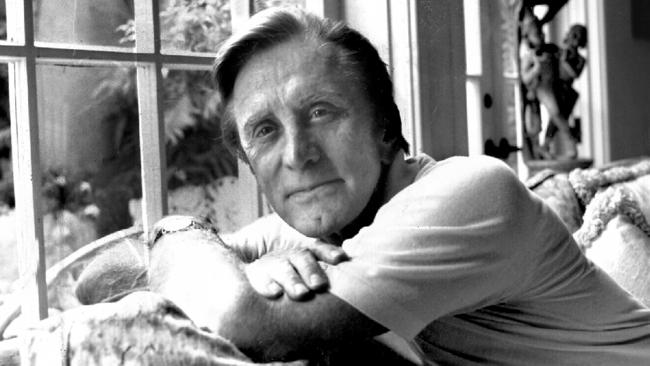
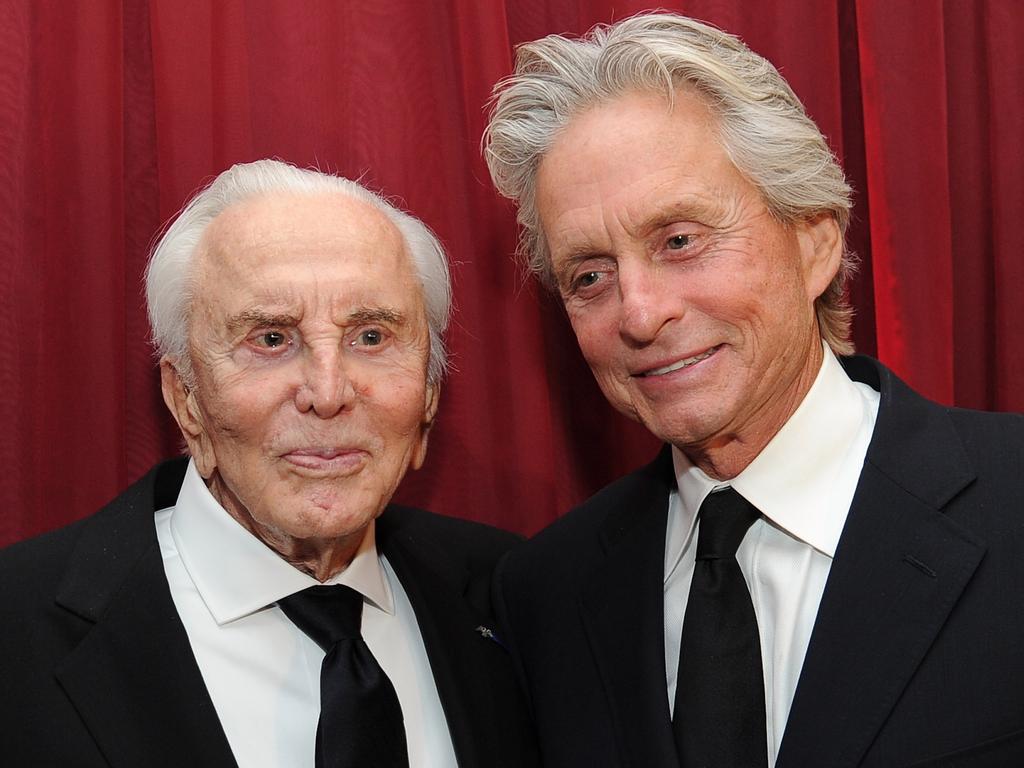


To join the conversation, please log in. Don't have an account? Register
Join the conversation, you are commenting as Logout